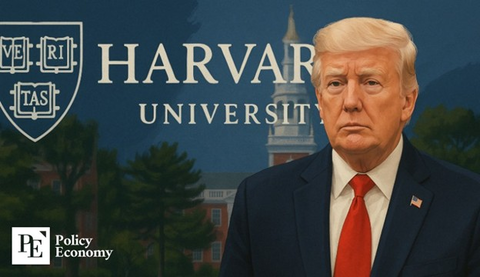Could MBA Students Manage Global Chaos?
Input
Modified
After years of upheavals, future business leaders are required to navigate the political turmoil
From climate change issues to vaccine nationalism and the competition between the US and China, international political tensions are escalating, affecting global businesses’ operations. Seeing the global enterprises walking a geopolitical tightrope, business schools are evolving to provide students with a curriculum in which they can learn how to manage the threat by linking the public and private sectors as well as politics.

Mike Rosenberg, from IESE Business School in Barcelona, mentions, “We are living at an incredibly interesting time in human history, and I think our job as educators is to prepare our students for that”. He adds, “What I try to teach them is to understand the complexity of the current situation and how things can be both better and worse at the same time.”
What Rosenberg aims in teaching geopolitics is to provide students with a broad understanding of geopolitical history. In the elective courses, which comprise 40 percent of the MBA classes at IESE, Rosenberg encourages students to add their varying perspectives to the course since they all come from 60 different backgrounds.
“This is very powerful, especially when dealing with issues like the partition of India, the abuses of the military juntas in Latin America, or the situation in Israel and Palestine,” he says.
On the other hand, Rosenberg admits that the conflicts between students cannot be avoided in the geopolitical discussion and therefore sometimes he needs to step into it and let those having different perspectives raise their voices. Rosenberg also notes that a central part of the MBA programs is to make this balance and that students are satisfied with these classes despite the classroom conflicts since they allow them to hear peers’ opinions.
How can students accurately measure global uncertainty?
Among other universities across the globe, since 2007, Grenoble Ecole de Management in France has been a leading institution in combining geopolitics with its traditional MBA curriculum. “Students need to be able to assess geopolitical risks,” says Phil Eyre, the MBA program director at Grenoble. “MBA programs, therefore, need to offer core modules in risk management, geopolitics, macroeconomics, [alongside] well-established subjects such as accounting, finance, microeconomics, and people management.”
Eyre underlines that business schools do not need to be rethought despite the current volatility, but it does have to evolve. Also, traditional managerial skills remain an important requirement for both future leaders and corporates even in an era of unprecedented geopolitical volatility.

Nevertheless, Eyre agrees that the shift in global risks is promoting adjustments in MBA students so that they are ready to navigate the relationship between geopolitical threats and economic prospects. “Employers are aware that a non-native student completing an MBA in France has by definition a strong international profile, is multilingual, and is at ease when operating in a turbulent, multicultural environment,” he says. “MBA [graduates] are expected to make the link between macroeconomics, geopolitics, corporate strategy and competitiveness.”
Aligned with IESE, the MBA students at Grenoble are also encouraged to share their viewpoints in the interactive peer discussions, delivering presentations and giving feedback to one another.
“Students are required to argue and to justify their views rationally and not simply state an ideological position,” says Eyre. “Students expect to witness disagreements in the classroom, that is part of the learning process. The art of teaching geopolitics is ensuring the conflict remains intellectual, and does not turn into a hot-blooded confrontation.”
Struggling with global issues from the climate crisis and global health security
Mari Sako, professor of management studies at the University of Oxford’s Saïd Business School in the UK, addresses the need to equip students with the capability to influence the global rules of the game around systemic challenges has been heightened. Sako underlines that future leaders should be able to manage global issues such as climate change, sustainability, global health, international migration, and human rights, saying “This involves analyzing the non-market environment, including geopolitical risks, and developing and implementing a corporate diplomacy plan, with skills and expertise in framing the issue, influencing, and coalition-building”.
“The politics of global business has always been important, but it’s more so today when the world is getting less flat, with neo-nationalism and protectionism in a multi-polar world,” Sako notes that the global enterprises will require more future leaders with the capability of navigating the link between the public and private and that subsequently, students’ interest in this skill is increasing.
Eyre at IESE says that current upheavals are a good learning opportunity in a way for MBA students: “In the coming year, we expect to discuss the geopolitics of vaccination, global warming, and sustainable production.”
Read more: Should you consider an online MBA program?
Member for
8 monthsAs one of the youngest members of the team, Tyler Hansbrough is a rising star in financial journalism. His fresh perspective and analytical approach bring a modern edge to business reporting. Whether he’s covering stock market trends or dissecting corporate earnings, his sharp insights resonate with the new generation of investors.






































 New technologies can change the paradigm of learning experience. Photo:
New technologies can change the paradigm of learning experience. Photo: